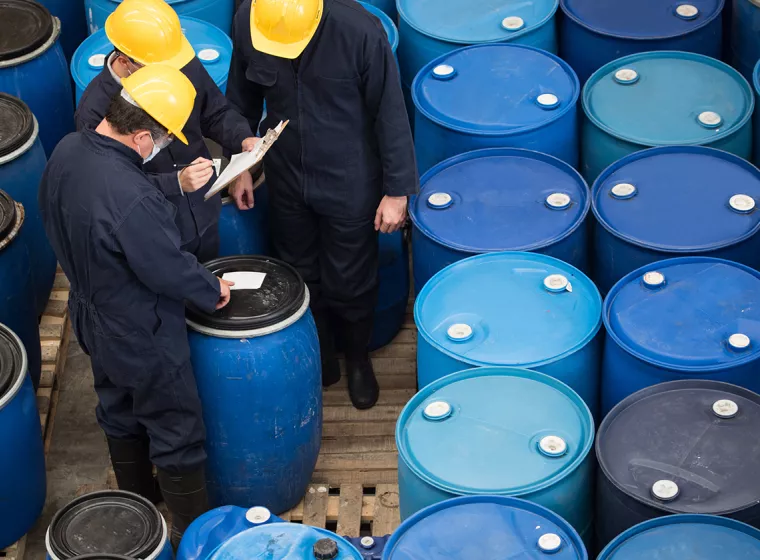March 28, 2023
Proposed restrictions would have drastic impacts on use, manufacture, and imports of PFAS-containing products in the EU
On Feb. 7, the European Chemicals Agency (ECHA) released a proposal from five EU member nations that would restrict the manufacture and use of per- and polyfluoroalkyl substances (PFAS) as a chemical class in the EU. The six-month consultation period that allows industry to provide comment and where additional scientific review will occur for this proposal opened on March 22, 2023. A stakeholder information session will also be held on April 5, 2023.
Considered the EU's largest-ever chemicals prohibition, the proposed restrictions would affect at least 10,000 substances widely used in products as varied as wind turbines, fast-food wrappers, solar panels, cookware, firefighting foams, cosmetics, and water-repellant clothing. The proposal would also restrict imports of PFAS-containing products to the EU.
The proposed restriction of the PFAS class identifies two regulatory options, both of which include a full ban intended to address the manufacture, distribution, and use of PFAS alone as well as when used as constituents in other substances, in mixtures, and in articles above a certain concentration. The proposal, however, does not apply to certain active substances subject to other regulatory controls, such as in biocidal products, plant protection products, or human or veterinary medicines. In addition, PFAS that are part of aqueous film-forming foams (AFFF) for specialized firefighting substances will be phased out through a separate restriction policy.
The proposal contains two restriction options. The first option enacts a total ban on PFAS above threshold amounts after an 18-month transition period. Under the second option, where PFAS-free alternatives cannot readily be found (e.g., implantable medical devices, food manufacturing equipment, etc.), various derogations, or time-limited exemptions, of up to 12 years may be granted.
The scope of the restriction proposal, prepared by authorities from Germany, Denmark, the Netherlands, Norway, and Sweden, treats PFAS as a chemical class, stating that "PFAS and their degradation products may persist in the environment longer than any other man-made chemical." Scientists and regulatory bodies have considered various grouping strategies for PFAS based alternatively on their intrinsic molecular chemistry or through risk assessment approaches that evaluate cumulative exposure and effects. Since there is not scientific consensus about how to classify and evaluate PFAS, the restriction report proposes a group approach to the regulation of PFAS as an efficient means of addressing the complex interplay of concerns.
The proposed EU ban defines PFAS as "any substance that contains at least one fully fluorinated methyl ( — CF3) or methylene ( — CF2 — ) carbon atom (without any H/Cl/Br/I attached to it)." A limited exemption for specific small molecule PFAS subgroups, such as trifluoromethanol, trifluoromethylamine, and difluoromethanediol, is included, as these are expected to "mineralize to CO2, H2O and HF, leaving no persistent fluorinated organic metabolites that would fulfill the scope definition."
Under the proposal, PFAS includes a wide range of fluorinated substances and materials with different characteristics and properties, such as refrigerant gases and fluoropolymer materials, and therefore the restrictions would widely impact industry. The European Chemical Industry Council expressed concern about the proposed ban, citing several PFAS applications that are critical to society and used in the advancement of hydrogen cell energy technology.
The European Commission expects a final proposal to be ready for a vote in 2025. If the proposal passes, ban enforcement would begin in 2026 or later.
What Can We Help You Solve?
Exponent's multidisciplinary team of PFAS experts closely monitors the continually changing regulatory landscape for PFAS. We are equipped to offer guidance and resources to help clients adapt to policy interpretations and changes that can affect development, production, supply, and use of products that rely on PFAS.

Product Stewardship
Overcome business and regulatory challenges at every stage, from research and design to disposal and recycling.

EU REACH Support
Extensive consulting services to help you meet the EU's REACH compliance requirements.

Materials Used in Medical Devices, Implants & Surgical Tools
Expert evaluation of the materials used in medical devices, implants, and surgical tools.

Polymers Expertise for Consumer Products
Rigorous testing and analysis of polymers in consumer products.





